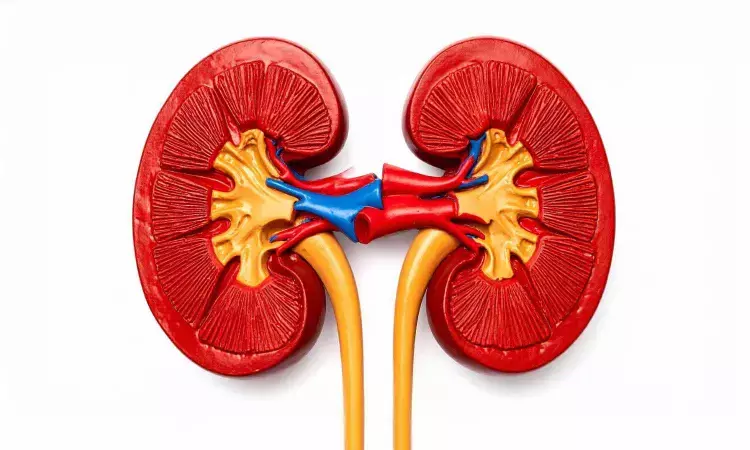- Home
- Medical news & Guidelines
- Anesthesiology
- Cardiology and CTVS
- Critical Care
- Dentistry
- Dermatology
- Diabetes and Endocrinology
- ENT
- Gastroenterology
- Medicine
- Nephrology
- Neurology
- Obstretics-Gynaecology
- Oncology
- Ophthalmology
- Orthopaedics
- Pediatrics-Neonatology
- Psychiatry
- Pulmonology
- Radiology
- Surgery
- Urology
- Laboratory Medicine
- Diet
- Nursing
- Paramedical
- Physiotherapy
- Health news
- Fact Check
- Bone Health Fact Check
- Brain Health Fact Check
- Cancer Related Fact Check
- Child Care Fact Check
- Dental and oral health fact check
- Diabetes and metabolic health fact check
- Diet and Nutrition Fact Check
- Eye and ENT Care Fact Check
- Fitness fact check
- Gut health fact check
- Heart health fact check
- Kidney health fact check
- Medical education fact check
- Men's health fact check
- Respiratory fact check
- Skin and hair care fact check
- Vaccine and Immunization fact check
- Women's health fact check
- AYUSH
- State News
- Andaman and Nicobar Islands
- Andhra Pradesh
- Arunachal Pradesh
- Assam
- Bihar
- Chandigarh
- Chattisgarh
- Dadra and Nagar Haveli
- Daman and Diu
- Delhi
- Goa
- Gujarat
- Haryana
- Himachal Pradesh
- Jammu & Kashmir
- Jharkhand
- Karnataka
- Kerala
- Ladakh
- Lakshadweep
- Madhya Pradesh
- Maharashtra
- Manipur
- Meghalaya
- Mizoram
- Nagaland
- Odisha
- Puducherry
- Punjab
- Rajasthan
- Sikkim
- Tamil Nadu
- Telangana
- Tripura
- Uttar Pradesh
- Uttrakhand
- West Bengal
- Medical Education
- Industry
Sotagliflozin outperforms dapagliflozin for reducing salt- sensitive hypertension and kidney injury: Study

Sodium-glucose co-transporter 2 (SGLT2) inhibitors, initially developed to treat type 2 diabetes, have significant heart- and kidney- protective effects. In the kidney, SGLT2 reabsorbs approximately 97% offiltered glucose in the S1 and S2 segments of the proximal tubule, while SGLT1reabsorbs the remainder in the S3 segment. In research conducted in rats, investigators found that dual inhibition of SGLT1 and SGLT2 more effectively reduces salt-sensitive hypertension and kidney injury than SGLT2 inhibition alone. The findings will be presented at ASN Kidney Week 2025 November 5–9.
Salt-sensitive hypertension—elevated blood pressure due to excess salt consumption— affects nearly half of individuals with high blood pressure and substantially contributes to kidney disease, cardiovascular complications, and progression to kidney failure. When researchers compared selective SGLT2 inhibition (through treatment with dapagliflozin) with dual SGLT1/2 inhibition(through treatment with sotagliflozin) in a well-established rat model of salt-induced hypertension and chronic kidney disease, they found that both drugs had profound effects on slowing the progression of salt-induced hypertension.
Compared with selective SGLT2 inhibition, dual SGLT1/2 inhibition produceda greater reduction in mean arterial pressure and more effectively attenuated kidney injury, although it had no impact on blood pressure under normal-saltconditions. Sotagliflozin also reduced body weight, enhanced urinary sodiumand chloride excretion, and nearly doubled fractional glucose excretion compared with dapagliflozin. Neither treatment altered kidney function. SGLT2 inhibition modulated several metabolic pathways in a region-specific manner in the kidney, with pronounced effects on lipid metabolism and inflammatory signaling.
“Our study provides preclinical evidence supporting the expanded use of dualSGLT1/2 inhibitors beyond heart failure and diabetes, extending their potential into hypertension management, particularly in salt-sensitive patients,” said corresponding author Olha Kravtsova, PhD, of the University of South Florida. “These findings also establish a foundation for further investigation into regional kidney metabolism. Moreover, they highlight lipid and inflammatory pathways as promising therapeutic targets in the treatment of hypertension.”
Reference: Sotagliflozin outperforms dapagliflozin for reducing salt- sensitive hypertension and kidney injury in rats; American Society of Nephrology; Meeting: ASN Kidney Week.
Dr Kamal Kant Kohli-MBBS, DTCD- a chest specialist with more than 30 years of practice and a flair for writing clinical articles, Dr Kamal Kant Kohli joined Medical Dialogues as a Chief Editor of Medical News. Besides writing articles, as an editor, he proofreads and verifies all the medical content published on Medical Dialogues including those coming from journals, studies,medical conferences,guidelines etc. Email: drkohli@medicaldialogues.in. Contact no. 011-43720751


